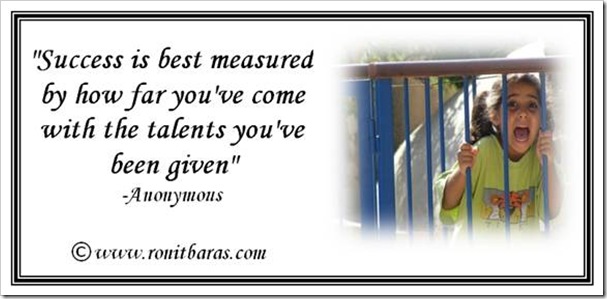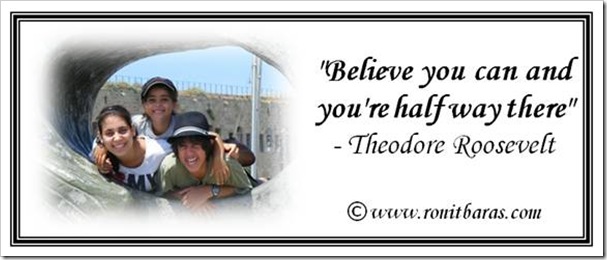Rewards
Just like praise and appreciation, rewards are a wonderful way to motivate kids. I think it is very important to understand that rewards are second-level “carrots”. Usually, rewards are required when you have exhausted all your praises and they do not seem to work. Sadly, this usually happens when your kids do not trust that you mean what you say.
While praises and appreciation are verbal, kids can keep their rewards with them as long as they want to. It is their way of extending the encouragement and holding on to the thought that you want to make them happy and that you are there to help them move forward.

Rewards are at the heart of Behavior Management and there is an ongoing debate about what a good reward is and what is not so good. Here my tips on how to get the most out of rewarding your kids and avoid “side effects”.
How to reward your kids
- Kids are different and are motivated by different rewards. What works for one, does not have to work for others. Your kids are not all the same age and if they are (twins), they are still different kids, so treat them as individuals. If an attempt to use the same reward for all your kids fails (and you would want to start this way to make life easy for yourself), switch to individual rewards.
- I would recommend staying away from food rewards (especially candy and deserts). A huge portion of our society is obese because they treat food as a reward. No need to add your kids into that group. However, I would consider their favorite meal a good reward and I would make it for the whole family and announce it as a way to celebrate the kids’ success. Going out to a restaurant is also a reward in our family. It combines quality time with doing something special in the same event.
- Prepare a reward list you feel comfortable with and choose your rewards from it. Never come up with a reward without thinking it through first.
- Discuss the rewards with your partner. If your kids find that you and your partner disagree on a reward, they will start negotiating with you and you will lose the ability to use this technique to help and encourage your kids.
- Introduce the rewards to your kids in times of peace and not in time of crisis. Offering a reward after your kids have done something well is encouraging. Offering it on condition of good behavior is bribery. I remember a friend who would say to her 5-year-old son every time we went to a restaurant, “If you eat your food, you can get ice cream”. It did not take long before he started saying, “If you want me to eat, I want my ice cream first” and nothing helped her. He ate his ice cream first and never ate the food. Do not go there, it is very disempowering. That little boy was scared, because he could not trust his parents’ strength of character.
- Never promise what you cannot fulfill like things you cannot afford, things out of your control, etc. If your word means nothing, you are not providing good support for your kids.
- Match the reward to the kids’ age. Start small. The younger the kids, the happier and more encouraged they are with simple rewards. You have plenty of time for substantial rewards later…
- Alternate rewards. I have found that some of my rewards lasted for a week, two or three weeks and when the motivation dropped, I needed to use something else. Be flexible and observant.
- Introduce rewards for effort and improvement. Your kids do not have to be perfect in order to be rewarded. When your kids fail to be perfect (only because they are human), they give up, which is the opposite of what you want. Progress, persistence and commitment are excellent reasons for encouragement.
- Teach your kids to reward themselves. Help them make a list of things they love doing and things that will make them happy and encourage them to reward themselves. Self rewards are a good way to guarantee your kids will be able to motivate themselves in the future.

Exercise
Sit down with your kids and help them make a happy list. This list can be a great resource for you to use for reward ideas and also an excellent resource for your kids to use when they need to encourage themselves. Remember, everything you ask them to do will be easier if you do it yourself. In teaching, we have a rule of experiencing things ourselves to have a better understanding of what kids needs to go through when learning a new concept.
Here are some topics you can mention to your kids to help them fill in their list: hobbies, small gifts, good use of spare time, food, drink, fruit, places to go, friends to visit, things to do with Mom and Dad…
How to make the list of happy things
- Encourage your kids to write 100 things that make them happy. It might take time, but they will go through several phases and eventually finish.
- Encourage them to write responsible things – things that are within their power to do or to get. They should avoid things like “The teacher will give me…” and “Kids will invite me…” as not responsible.
- Encourage them to write simple things that can make them happy without having to spend too much money. Kids need to learn that happiness is free.
- Work on your list together. It will give you an opportunity to swap ideas.
- Encourage your kids to post the list in a visible place to allow them to read it every day and allow you to get ideas to reward them.
- Explain to your kids that the list is flexible. Over time, we change our desires and it is perfectly fine and recommended to revisit the list, add, change or remove items from it. The more (relevant) items they have, the happier their life will be.

Here is a list of rewards to use when you want to motivate your kids to move towards something they want. I have written a list of 100 rewards that are suitable for different ages. Note that many of the pre-schooler ideas are perfectly suitable for primary-age kids or teens. Temporary tattoos and takeaway food are wonderful both at age 5 and at age 15.
100 reward ideas for different ages
- Balloons
- Stickers
- Party accessories – whistle, rattle, party hat…
- Play time with a friend
- Sleep over at a friends’ house
- Inviting a friend to a sleep over
- Story time in the library
- Shopping with a parent
- Special time with mom and dad riding a bike
- Special time with mom and dad walking hand in hand
- Cooking together
- Having a tea party with mom and dad in the garden
- Going camping
- Traveling
- Bringing a takeaway dinner
- Going out for dinner/lunch
- Their favorite desert
- Camping in the yard or in the living room
- Craft activities
- Coloring in books
- Favorite character socks
- Favorite character underwear
- Books
- Bookmarks
- Puzzles
- Crayons
- Games
- Bath toy
- Special colorful bubble bath
- Sticker tattoos
- Pillow fight
- Stamps
- Bringing a mattress and sleep over with mom and dad
- Making music, singing,
- Making a puppet show
- Dressing up
- Playing with dough
- Picnic
- An afternoon in the library
- Fishing trip
- Planting in the Garden
- Rides in an amusement park
- Swimming day
- Own make up for games
- Picking own birthday theme
- Piggy bank
- Treasure box
Primary school
- Having own email address
- Buying lunch at the cafeteria in school
- Novelty diary
- Novelty pencil
- Novelty pens
- Novelty stationary
- Glittered pens, papers…
- Modeling clay
- Chalks
- Pick to study a music instrument
- Sitting in the front seat in the car
- Choosing the menu for dinner
- Certificates
- Pick up the restaurant to go
- Decorate your own room
- Skate boarding
- Pocket money
- Hair accessories
- Bowling time with parents or friends
- Day off from school to spend with mom or dad
- Staying away from home with one of the parents
- Having a party at home
- Own house keys
- Own room
Teenage/High school
- Computer time
- TV time
- Choosing a movie to bring from the DVD shop
- Own mobile
- Credit on mobile
- Privileges for hobbies
- Have part time job
- Car privileges when able to drive
- Staying up late
- Dating privileges
- Special hair cut
- Invite friends for dinner
- Going to a concert
- Going to the movies
- Listening to own music
- Have their own bank account
- Have a magazine subscription
- Coffee or a restaurant with mom or dad
- Perfumes/aftershave/deodorants
- Hair Wax for styling
- Jewelry
- Buy them their favorite Music CD’s
- Being in charge of organizing a family event
- Having friends over for a movie or get together
- Gift voucher
- Holiday with far away family on your own
- Youth involvement
- Own digital camera
- MP3 player
Pre-schoolers
Privileges are a great way to reward kids and motivate them. Here is a tip that will allow you to fully use privilege rewards to help motivate your kids.
- Ask your kids to write a list of privileges they would like to have (you will be surprised to read what they write). Give each of your kids notes of a different color for this. Read all of them and leave only the ones you agree to give them. Fold the notes and put them in a jar. Whenever you want to reward your kids, ask them to pick one of their folded notes from the jar (they can tell by the color) and give them the privilege written on it.
- Time with parents is a great reward. Individual time is worth even more. Ask your kids to give themselves rewards of spending time with you. You will be surprised to discover how much they want to spend time with you and the things they want to do.

Summary
- Rewards are a great technique to motivate kids
- It is better to think ahead of a reward list, agree with your partner and promise only what you can deliver
- Kids are different and need different rewards. Adjust the award to the appropriate age and character of the child
- Privileges are great rewards
This post is part of the series Motivating Kids:
- Motivating Kids (1)
- Motivating Kids (2)
- Motivating Kids (3)
- Motivating Kids (4)
- Motivating Kids (5)
- Motivating Kids (6)
- Motivating Kids (7)
- Motivating Kids (8)
- Motivating Kids (9)
- Motivating Kids (10)
- Motivating Kids (11)
- Motivating Kids (12)
- Motivating Kids (13)
- Motivating Kids (14)
- Motivating Kids (15)
- Motivating Kids (16)
- Motivating Kids (17)
- Motivating Kids (18)
- Motivating Kids (19)











